What Web3 games did right that turn 2024 narrative in their favor?
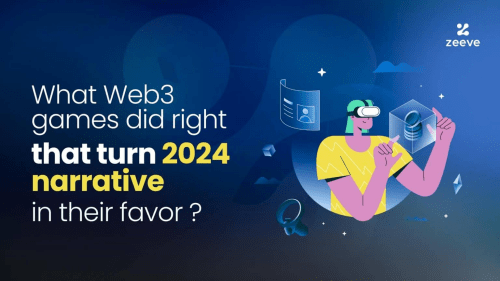
The web3 gaming industry is constantly climbing to new heights. As of March 2024, daily active addresses for on-chain games spotted at 6M+ and daily transactions volume around $100 million. It is not just the playerbase; web3 games also lead in terms of investment. April 2024 saw the highest investment in blockchain-based games at $988 million, which is almost double of January 2021’s data that stood at $288M. And it is expected to grow further to $65.7B by 2027.
Such magic numbers in web3 gaming again make people curious, raising the question– what web3 games did right that’s turning the spotlight towards them. These articles provide you answer to this question while explaining the Web3 Gaming Narrative in 2024 in a simplified way.
Quick dive into Web3 games’ progress so far
The web3 gaming industry is forging ahead with creative developments and innovations, propelling it to the next phase of maturity and thus building a solid playerbase for future. Started the journey with a simple multiplayers game-Huntercoin to now powering the future-proof web3 game like Pixels- the web3 gaming ecosystem has significantly evolved.
Today, web3 games are built for almost every genre– be it shooter games, role play, esports, or casual games. Big entrepreneurs to individual developers, everyone is tapping into web3 to build games that can amaze players and stay relevant in the long-run. With fair gaming, player-focused economies, asset ownership, and real-money rewards– web3 games are still stealing the spotlight in 2024.
Additionally, all the previous pain points related to low scalability, lack of customization, higher transaction cost, etc are now tackled well with the surge of standalone L2/L3 chains built with top such as Polygon, Arbitrum, Optimism, and ZkSync’s modular rollup stacks.

What all changes web3 games have adopted to turn the 2024 narrative in their favor?
Below are top moves that web3 games made to turn 2024 Web3 Gaming Narrative in their favor:
- Play-to-airdrop and node sale events:
Web3 is bringing more native ways to engage players and shift the focus solely from playing to earn money.
Play-to-airdrop and verifier node sales are some of the newly introduced methods that add some additional utility to gaming tokens.
For example, in Play-to-airdrop tokens are distributed according to the players’ in-game activities and dedication in leveling up their characters. Play-to-airdrop is mainly focused on kickstarting a game’s economy through. Popular web3 games like Pixels, Kuroro Beats, Nifty Island, Farcana, and MixMob have already launched their Play-to-airdrop events and achieved significant success.
Regarding node sales, XAI’s Arbitrum-powered Layer3 and gaming-adjacent cloud-compute project- Aethir have raised $15M and $65M+ respectively from sale of their verifier node; a new type of node for additional monitoring of rollup networks. If you want to learn more about the verifier node sale and its core concept, read the article we have linked below: Zeeve Launchpad for Node Sale Infrastructure: Boost Security & Token Utility in Rollups
- Adoption of custom L2/L3 chains:
Web3 games have faced a lot of challenges due to high traffic congestion, which leads to slow TPS, high gas cost, and impacts the network performance. As a solution, a lot of web3 games are shifting to their own standalone chain for cheaper transactions, higher TPS, and customizable features. Some of the highly-played crypto-native games like Gods Unchained and Illuvium have already built their custom chain with Immutable X– the NFT-friendly ‘validium’ powered offering with StarkWare technology offering zero gas fees, instant trades and massive scalability. Similarly, gaming L2/L3s are frequently developed with leading frameworks like Polygon CDK, Arbitrum Orbit, and OP Stack.
- The multichain approach:
Multichain gaming is a rising concept in the web3 gaming realm that allows a gaming project to leverage a multiple ecosystem altogether, for example- Immutable, Arbitrum, Robin, and Polkadot for an additional ecosystem boost. Players of multichain games can access the games across all the supported blockchains while seamlessly switching between them. It’s just like web2 game players can enjoy their favorite game on multiple PlayStation generations. Although this multichchain strategy has some technical limitations, and increased cost & risks, it’s worth noting that 27% of total web3 games has chosen multichain approach to amaze their plates and embrace a better growth. Here’s the data:
Source: Big Blockchain game report.
- A move towards more indie web3 games:
Indie games have brought a metaphoric shift in web3 games, allowing the industry to grow tremendously and match the popularity of AAA games. That’s because today’s players are more interested in gameplay loop and mechanics rather than caring much about high density graphics or characters. At present, a lion’s share of web3 games are mainly indie-level games, taking away over 94% of the total market. Casual games, RPG, and strategy games are the top genre of indie games which attracts players the most. Popular indie web3 games are Rocket League, Cult of the Lamb, Golf Story, and Moonlighter.
Learn in-depth about indie web3 games here.
- Account Abstraction:
Account abstraction (AA) is one of the new and interesting features that make we3 games more user friendly. AA brings the concept of social recovery and multi-signature wallets into games. The former offers seamless recovery of private keys in case lost because a ‘trusted group’ that you choose will still keep your keys safe. The latter enhances security of wallets by including several parties to sign transactions and approve it. A practical application of account abstraction is XRaise wallet integrated with AA functionalities to solve the problem of poor wallet UX and security challenges of web3 wallets.
- Sponsored/gasless gas transactions:
The concept of gasless or sponsored gas transactions is introduced to get higher player retention and conversion by eliminating the challenges they face due to gas payments. Immutable, the leading gaming-based projects has already been offering sponsored gas transactions to all the gaming chains or applications building using it. Thereby, web3 games can enable their players to interact with any game’s marketplace or ecosystem through a unique digital passport without any friction.
- Web2-matching UX for web3:
Web3 games are now offering Web2-like user experience so that players web2 players do not need to learn web3 game mechanics for just playing the game. No one cares about what’s running in the backend or what technologies their game uses. All they want is a smooth UX which should resemble the games they are already familiar with. Projects like Titanium games are making this possible by allowing players to fully engage in new-gen activities such as trading assets or using the blockchain tech without any discomfort of using wallets or dealing with cryptos. Just login and start playing– that’s it!
- Use of Generative AI and Virtual reality:
Combination of Generative AI and virtual reality (VR) creates more personalized and highly immersive experiences for players. It’s exciting for web3 gamers because they can create AI Avatars that have more creative expression, or engage with LLM and deep learning-based non-player characters, as well as create highly unique and personalized content for P2E games. All these features are mainly accommodated through metaverse games that have more than 600 Million active users as of 2024. Use of AI and VR/AR will further grow in 2024 and beyond, which will bring even more realistic games for web3.
Launch your next-gen, custom gaming L2/L3 chain with Zeeve RaaS
Zeeve RaaS offers a comprehensive gaming-focused stack that allows Web3 developers and enterprises to build tailor-made gaming Layer2 and Layer3 to support their specific use cases. Whether you want to migrate from a public chain to standalone L2 or you need a chain built from scratch, Zeeve’s services are optimized to handle each type of project.
WIth a strong focus on modularity, Zeeve allows gaming chains to build custom chains leveraging 30+ third-party integrations such as decentralized sequencer, MPC wallets, off-chain DA players, storage solutions, and more. Also, you can setup a fully-fledged DevNet for your gaming chain using our 1-click deployment sandbox available for OP Stack, Polygon CDK, Arbitrum Orbit, and ZkSync Hyperchain.
For more details about Zeeve RaaS or our blockchain services, contact us. Send us your queries via mail or set up a one-to-one call for in-depth discussion.


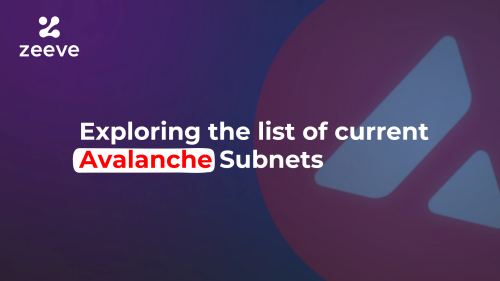
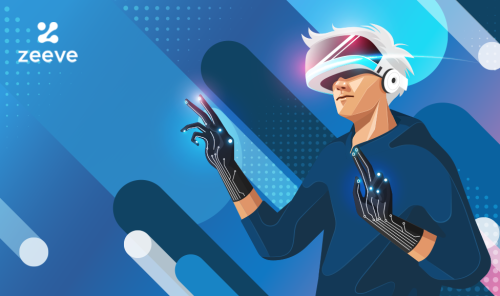
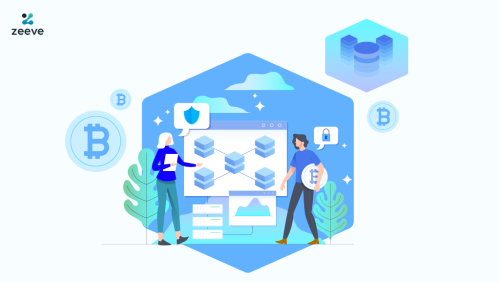
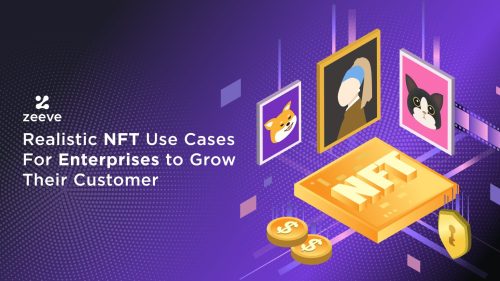
Responses